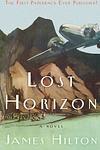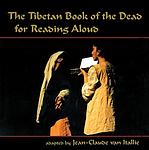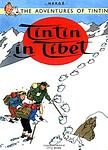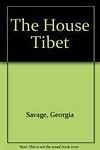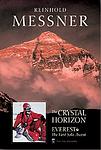The Greatest "Tibet" Books of All Time
Click to learn how this list is calculated.
This list represents a comprehensive and trusted collection of the greatest books. Developed through a specialized algorithm, it brings together 288 'best of' book lists to form a definitive guide to the world's most acclaimed books. For those interested in how these books are chosen, additional details can be found on the rankings page.
Genres
Countries
Date Range
Reading Statistics
Click the button below to see how many of these books you've read!
Download
If you're interested in downloading this list as a CSV file for use in a spreadsheet application, you can easily do so by clicking the button below. Please note that to ensure a manageable file size and faster download, the CSV will include details for only the first 500 books.
Download-
1. The Snow Leopard by Peter Matthiessen
"The Snow Leopard" is a travelogue that recounts the author's two-month journey in the Himalayas with naturalist George Schaller. The duo trek through the rugged and remote mountains of Nepal on a quest to study the rare blue sheep and possibly spot the elusive snow leopard. The book is as much a spiritual journey as it is a physical one, with the author seeking solace and understanding following the death of his wife. The narrative explores themes of grief, nature, and Buddhism, offering a poignant and introspective look at life and loss.
-
2. Lost Horizon by James Hilton
This novel tells the story of four Westerners who are kidnapped and taken to the mysterious Shangri-La, a utopian lamasery high in the mountains of Tibet. As they get to know their captors and the peaceful way of life in the lamasery, they must each decide whether or not they want to stay in this idyllic paradise that seemingly offers immortality, or try to escape back to their former lives. The story explores themes of time, happiness, and the often complex choice between the familiar and the unknown.
-
3. Into Thin Air by Jon Krakauer
This gripping non-fiction book recounts the tragic events of the 1996 Mount Everest disaster. The author, a journalist and experienced climber, was part of a commercial expedition to summit Everest. The expedition soon turned disastrous due to a severe storm, leading to the death of several climbers from various teams. The book provides a vivid, personal account of the harrowing ordeal, detailing the physical and psychological challenges faced by climbers at high altitudes, as well as the ethical and commercial aspects of mountaineering expeditions.
-
4. Seven Years in Tibet by Heinrich Harrer
This book is a travel memoir that recounts the author's escape from a British internment camp in India during World War II and his subsequent journey through the Himalayas to Tibet, where he becomes a tutor and friend to the Dalai Lama. The book provides a detailed account of Tibetan culture, customs, and the political turmoil leading up to the Chinese invasion, as seen through the eyes of a foreigner who spent seven years living there.
-
5. The Tibetan Book of the Dead: Awakening Upon Dying by Padmasambhava, Karma Lingpa
"The Tibetan Book of the Dead: Awakening Upon Dying" is a spiritual guide that explores the stages of death and afterlife from a Tibetan Buddhist perspective. It provides instructions for the dying and the living, offering meditative and contemplative techniques to prepare for death, navigate the intermediate state (Bardo), and achieve liberation. The book serves as a manual for understanding the transition from life to death, making it less of a fearful experience and more of a conscious, spiritual journey.
-
6. Tintin In Tibet by Hergé
In this gripping adventure, the young and intrepid reporter, accompanied by his faithful dog, embarks on a perilous journey to the snowy peaks of the Himalayas. Motivated by a vivid dream about his friend Chang being in danger following a plane crash, he is determined to rescue him against all odds. Despite skepticism from his friends and the challenges posed by the harsh mountain environment, including encounters with the legendary Yeti, his unwavering belief in his friend's survival drives him forward. This story is a testament to the themes of friendship, loyalty, and the enduring human spirit in the face of adversity.
-
7. The Rose Of Tibet by Lionel Davidson
The novel is a thrilling adventure set in the 1950s, where a young British film assistant embarks on a perilous journey into the Himalayas to find his missing brother. Along the way, he encounters a hidden Tibetan kingdom, where he becomes entangled in a web of intrigue, romance, and political rebellion. As he navigates the treacherous landscape and the complexities of an ancient culture, he discovers a rare and beautiful artifact, the Rose of Tibet, which holds significant power and meaning. His quest becomes a transformative experience, challenging his endurance and reshaping his understanding of the world.
-
8. The House Tibet by Georgia Savage
"The House Tibet" is a novel that explores the complex tapestry of family life, identity, and the enduring impact of history on personal lives. The story follows a woman who, after the death of her mother, inherits a house filled with mysterious artifacts and echoes of the past. As she delves into her mother's secretive history, she uncovers connections to Tibet and a family legacy shaped by love, loss, and the struggle for freedom. The narrative weaves together the present and the past, revealing how the political turmoil of Tibet has rippled through generations, affecting the lives of those far removed from its borders. The protagonist's journey is one of self-discovery and reconciliation, as she comes to terms with her heritage and the threads that bind her to the enigmatic House Tibet.
-
9. The Cult Of Emptiness The Western Discovery Of Buddhist Thought And The Invention Of Oriental Philosophy by Urs App
This book delves into the fascinating journey of how Buddhist thought was introduced and interpreted in the West, tracing the origins back to the encounters between European intellectuals and Asian cultures. It explores the notion of "Oriental Philosophy" as a construct of Western imagination, shaped by the translations and interpretations of texts that were often misunderstood or taken out of context. The author critically examines the romanticization and misconceptions that led to the creation of a mystical and exotic Eastern philosophy, highlighting the impact of these interpretations on both Western perceptions of Buddhism and the development of modern philosophy. Through a meticulous historical analysis, the book reveals the complex dynamics of cultural exchange, intellectual curiosity, and the quest for spiritual understanding, shedding light on the enduring fascination with the concept of emptiness and the cultural constructs that have emerged around it.
-
10. Everest: The West Ridge by Thomas Hornbein
This book is a firsthand account of a daring and historic climb of Mount Everest via the treacherous West Ridge - a route that had never been successfully ascended before. The narrative vividly describes the extreme physical and mental challenges faced by the climbers, the breathtaking beauty of the Himalayas, and the camaraderie and teamwork that was essential for survival. The author's detailed and compelling recounting of the expedition offers an intimate look at the perils, triumphs, and the sheer magnitude of human endurance in one of the harshest environments on Earth.
-
11. My Journey to Lhasa by Alexandra David-Neel
This book is a fascinating travel memoir documenting the author's daring and perilous journey to Lhasa, the capital of Tibet, in 1923. Disguised as a beggar and accompanied by a young Tibetan monk, she traversed harsh terrains, braved extreme weather conditions, and evaded authorities who forbade foreigners from entering the city. Throughout her journey, she encountered various aspects of Tibetan culture, religion, and way of life, offering an insightful and vivid portrayal of a land and people largely unknown to the outside world at that time.
-
12. Dignaga's Investigation Of The Percept by Douglas Duckworth
"Dignaga's Investigation of the Percept" is a scholarly analysis that delves into the seminal work of Dignaga, an influential Indian Buddhist philosopher and logician. The book provides a detailed examination of Dignaga's theories on perception and epistemology, exploring his arguments that perception is a non-conceptual, direct form of cognition, distinct from inferential cognitive processes. Through a comprehensive study, the text not only elucidates Dignaga's philosophical contributions but also discusses their implications and the subsequent debates they sparked in classical Indian philosophy, offering insights into the broader discourse on the nature of knowledge and reality in Buddhist thought.
-
13. The Crystal Horizon by Reinhold Messner
"The Crystal Horizon" is a gripping account of the author's solo climb of Mount Everest without the aid of supplemental oxygen, a feat never accomplished before. The book not only details the physical and mental challenges faced during the climb but also delves into the philosophical and spiritual journey the author undergoes. The narrative is interspersed with reflections on the history and culture of the Himalayas, the nature of mountaineering, and the author's personal beliefs and motivations.
Reading Statistics
Click the button below to see how many of these books you've read!
Download
If you're interested in downloading this list as a CSV file for use in a spreadsheet application, you can easily do so by clicking the button below. Please note that to ensure a manageable file size and faster download, the CSV will include details for only the first 500 books.
Download
